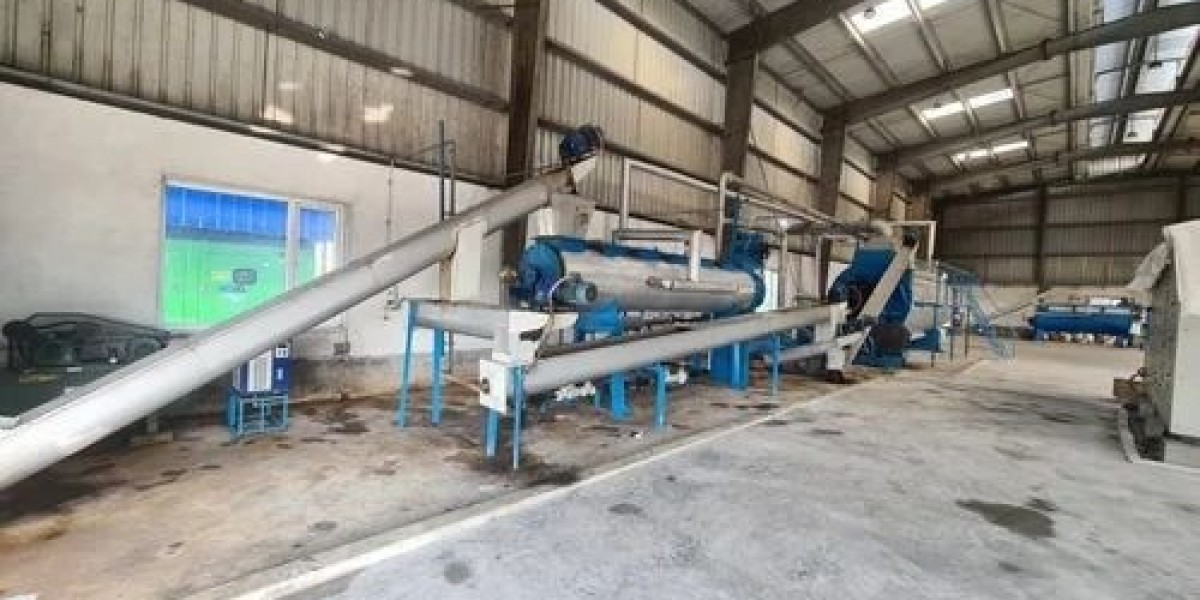Fish meal is a high-protein feed ingredient made from fish and other seafood byproducts that are processed and dried to create a nutrient-rich product. It is produced by grinding whole fish or fish remnants such as trimmings, heads, and bones into a fine powder after being cooked and pressed to remove excess water and fat. The primary purpose of fish meal is to serve as a source of protein and essential fatty acids in animal feed, particularly for aquaculture, poultry, and livestock industries. Rich in omega-3 fatty acids, amino acids, and essential micronutrients, fish meal is recognized for its high digestibility and nutritional benefits. It is widely used to enhance the growth, health, and productivity of farmed fish, shrimp, poultry, and pigs. The production of fish meal is often closely linked to the fishing industry, with fish species such as anchovies, menhaden, and sardines being commonly used as raw materials.
The global fish meal market is experiencing steady growth primarily driven by the rapid expansion of the global aquaculture industry, where fish meal plays a pivotal role in ensuring optimal growth and health in farmed fish species. As the world’s demand for seafood rises, fish meal’s high protein content and excellent digestibility make it an essential ingredient in fish feed. Moreover, the growing trend of sustainable and responsible aquaculture practices is pushing for the continued use of fish meal, as it supports the nutrition of aquatic species without relying on excessive grain-based alternatives.
IMARC’s new report titled “Fish Meal Manufacturing Plant Project Report 2025: Industry Trends, Plant Setup, Machinery, Raw Materials, Investment Opportunities, Cost and Revenue,” provides a comprehensive roadmap for setting up a fish meal manufacturing plant. The study encompasses all the essential information needed to enter the fish meal industry. This report offers an in-depth evaluation of the fish meal manufacturing plant cost, enabling readers to understand recurring operational expenditures and return on investment. It is a valuable resource for entrepreneurs, investors, researchers, consultants, business strategists, and anyone with an interest or stake in the fish meal sector. Moreover, it outlines the fish meal manufacturing plant setup cost, guiding users through the capital planning and resource allocation stages essential for launching production.
Key factors for setting up a fish meal manufacturing plant:
1. Market Research
The fish meal market is the increasing demand for animal protein in emerging economies, particularly in Asia and Latin America. With a rising middle class and greater consumption of meat and seafood products, the need for efficient, protein-rich feed ingredients in poultry, livestock, and aquaculture industries is escalating. The proven ability of fish meal to enhance feed conversion ratios and animal health makes it a preferred choice for producers. In addition to these factors, the adoption of new technologies and innovations in fish meal production, such as advanced processing techniques and sustainable sourcing practices, is shaping market trends. These advancements aim to optimize production efficiency, minimize waste, and improve the overall quality of fish meal.
The report offers an exhaustive overview of the global fish meal manufacturing industry, including a detailed breakdown by segments and regions within the sector. It also includes in-depth analyses of prices involved, market trends and historical data and forecast.
- Market Trends
- Market Breakup by Segment
- Market Breakup by Region
- Price Analysis
- Market Forecast
2. Planning and Designing
A detailed and up-to-date business plan is indispensable for mapping out the steps to establish and operate a fish meal manufacturing facility. This report offers in-depth details about the process flow and the various unit operations involved in a fish meal manufacturing production plant.
- Product Overview
- Unit Operations Involved
- Mass Balance and Raw Material Requirements
- Quality Assurance Criteria
- Technical Tests
Request for a Sample Report:
https://www.imarcgroup.com/fish-meal-manufacturing-plant-project-report/requestsample
3. Legal and Regulatory Compliance
Understanding and complying with the intricate framework of business laws and regulations is a vital aspect of establishing a fish meal manufacturing facility. This requires a detailed knowledge of legal obligations, such as labour laws, environmental standards, tax policies, and industry-specific regulations.
4. Plant Requirements and Costs
The report offers a detailed location analysis, including insights into land selection, key criteria, location importance, environmental considerations, and associated costs for establishing a fish meal manufacturing facility. It also provides information on plant layout and the factors that impact its design.
- Land, Location and Site Development
- Plant Layout
- Machinery Requirements and Costs
- Raw Material Requirements and Costs
- Packaging Requirements and Costs
- Transportation Requirements and Costs
- Utility Requirements and Costs
- Human Resource Requirements and Costs
Browse the Full Report with the Table of Contents:
https://www.imarcgroup.com/fish-meal-manufacturing-plant-project-report
5. Hiring and Training
Effective workforce planning and recruitment strategies are critical for assembling a skilled and efficient team to manage a fish meal manufacturing plant. This process includes identifying the specific skills and qualifications needed for different roles and anticipating future staffing requirements based on production goals and business expansion.
- Complying with Labor Laws and Regulations
- Implementing Training Programs for Employees
- Developing Health and Safety Protocols
6. Supply Chain Management
Building strong partnerships with suppliers and vendors is crucial to maintaining a dependable and cost-efficient supply chain. This requires choosing partners who can reliably deliver high-quality raw materials and components at competitive rates.
- Implementing Efficient Inventory Management Systems
- Planning Logistics and Transportation Networks
7. Project Economics
This entails a thorough analysis of the costs associated with a fish meal manufacturing plant, covering capital expenditure (CapEx), operating expenditure (OpEx), income forecasts, taxation, depreciation, liquidity, profitability, payback period, net present value (NPV), uncertainty, sensitivity assessments, etc. In addition to this, it includes an in-depth review of financial assistance options and a comprehensive list of certifications necessary for establishing the plant.
- Capital Investments
- Operating Costs
- Expenditure Projections
- Revenue Projections
- Taxation and Depreciation
- Profit Projections
- Financial Analysis
8. Marketing and Distribution Strategies:
Creating a robust marketing strategy and establishing strong brand positioning are vital for building a manufacturing plant’s market presence. This process includes conducting thorough market research to identify customer needs, preferences, and competitive trends.
- Identifying Distribution Channels and Sales Networks
- Leveraging Digital Marketing and E-Commerce Platforms
- Participating in Trade Shows and Industry Events
About Us: IMARC Group is a global management consulting firm that helps the world’s most ambitious changemakers to create a lasting impact. The company excel in understanding its client’s business priorities and delivering tailored solutions that drive meaningful outcomes. We provide a comprehensive suite of market entry and expansion services. Our offerings include thorough market assessment, feasibility studies, company incorporation assistance, factory setup support, regulatory approvals and licensing navigation, branding, marketing and sales strategies, competitive landscape, and benchmarking analyses, pricing and cost research, and procurement research.
Contact Us:
IMARC Group
134 N 4th St. Brooklyn, NY 11249, USA
Email: sales@imarcgroup.com
Tel No:(D) +91 120 433 0800
United States: +1–631–791–1145







